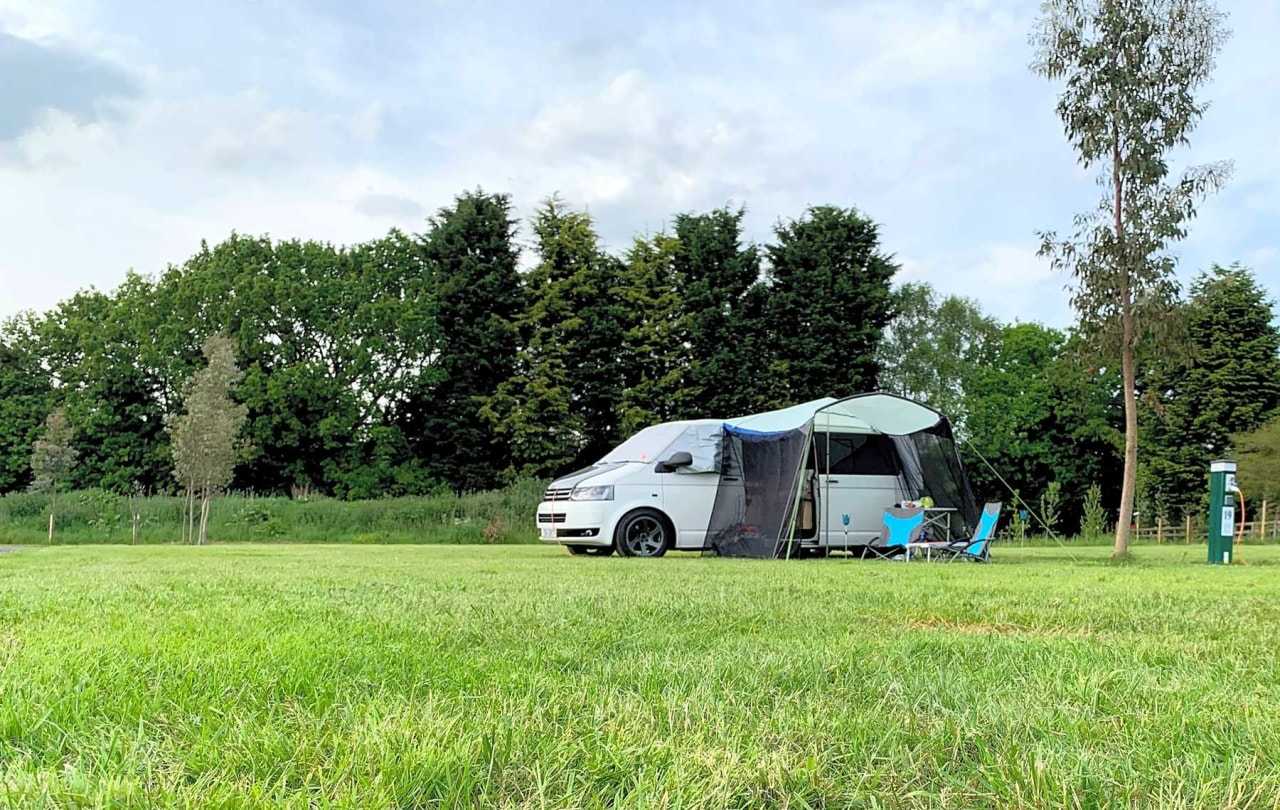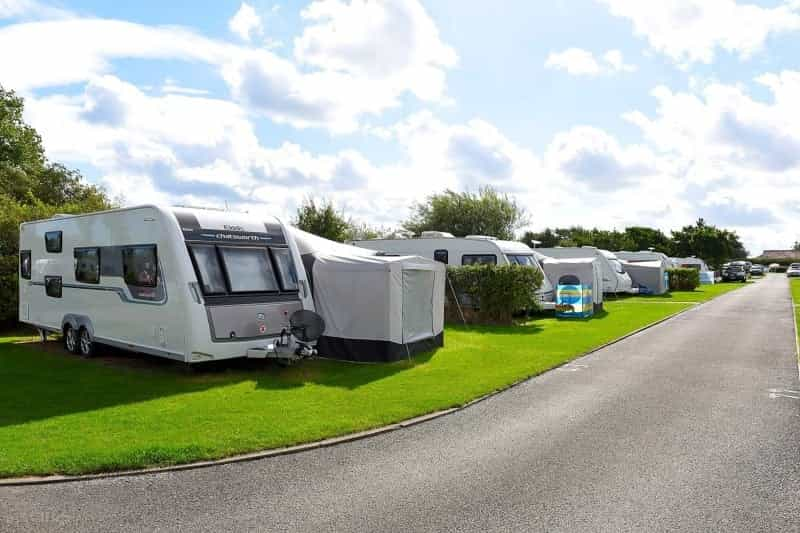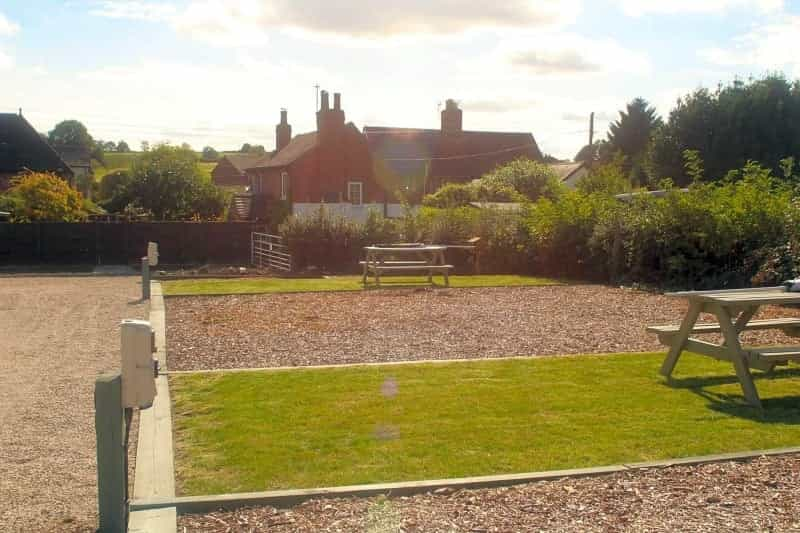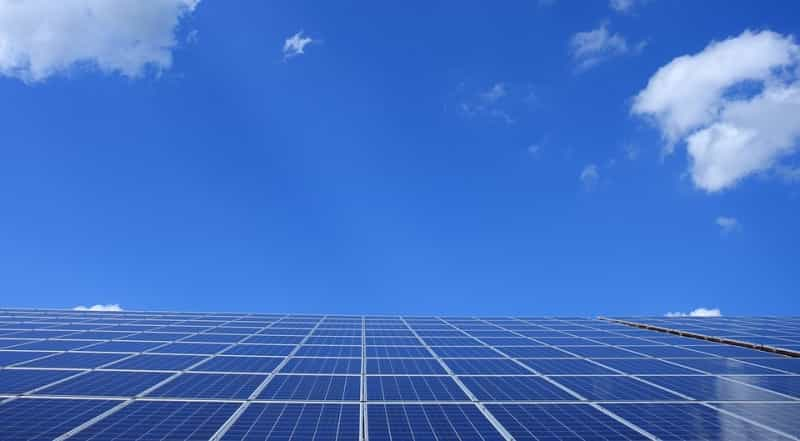Camping with electricity
Camping with electrical appliances can seem daunting at first, but with the right knowledge and equipment electric hook-ups are easy to use and can make your stay more comfortable. This guide covers the pros and cons of camping with electricity, how to get connected, safety and any other questions you might have.

Do I need electricity?
If you’re camping in a tent, opting for an electric pitch allows you to bring home appliances along, like a mini fridge, tent lights, a kettle or a hairdryer. Campervans, caravans and motorhomes, meanwhile, will often need an electric hook-up to recharge their batteries and keep the lights, fridge and other systems working.
There are, of course, lots of reasons to go camping without electricity, and there are plenty of gas and solar-based alternatives available for cooking, heating and recharging mobile phones. Ask yourself the following questions if you’re unsure about what kind of pitch you want:
-
Are you prepared to take a bit longer to do things the old-fashioned way?
-
Are you happy to use shared amenities or go off site to watch that all-important football game/talent show finale/film that brings you together as a family ?
-
Are you going to be spending most of your time off site, just coming back to your pitch as somewhere to sleep?
If you answered ‘no’ to most of the above, you might appreciate the comfort and convenience of an electric pitch.

Electric hook-ups
Electric hook-ups (also known as EHUs) allow you to access mains electricity in your unit safely. Almost all UK campsites will have a three-pin connector providing a 230-volt supply (the same voltage you get through the plugs at home).
However, there is a difference between voltage and current, which is measured in amps. Current is essentially about the total capacity of an electrical system, which tends to be limited on campsites. While most UK homes have a total amperage of around 60 to 100 amps, the current on domestic campsites is usually no higher than 16 amps and may be less (this information is displayed alongside the pitch dimensions on each Pitchup listing). Other common amperages in the UK include 10 amps and 6 amps.
To work out which appliances – and how many – you can safely connect at any one time, you will need to know how much power each one uses (measured in watts). To do this, simply divide the wattage of the appliance by the voltage of the system:
|
Appliance |
Wattage (power) |
Voltage |
Amperage (current) |
|
Travel hair dryer |
1000 watts |
130 volts |
7.69 amps |
|
High-powered hair dryer |
1800 watts |
130 volts |
13.85 amps |
|
Travel kettle |
800 watts |
130 volts |
6.15 amps |
|
Domestic kettle |
2000 watts |
130 volts |
15.38 amps |
|
Camping fridge |
70 watts |
130 volts |
0.54 amps |
|
Campers’ electric hob/hot plate |
1000 watts |
130 volts |
7.69 amps |
Indicative use only; always check the details for your individual devices. This information is often displayed on the bottom of the device.
As you can see from the table above, it is almost always worth using a low-wattage appliance to keep your electricity usage to a sensible level, especially if you are using more than one device at the same time. Often, appliances use more power when starting up than when running at a normal level, so make sure you don’t plug everything in at once.
If the circuit is overloaded, it is possible that you and/or your neighbours will lose power. Most of the time, a member of site staff will have to come and reset the system – this may involve a charge and may not be possible at certain times, such as during the night. In a nutshell, if you’re not sure the circuit can take it, it’s probably better to play it safe – otherwise you could end up losing your connection and being unpopular with fellow campers.

Staying safe with an electric hook-up
Camping with electricity brings a lot of advantages, but it’s important to stay safe when plugging into the grid. These following tips will help you keep camping safely.
All units:
-
Always use a purpose-built lead with a weatherproof plug and lead (these are normally blue or orange in colour).
-
Always fully uncoil/unravel the lead to prevent it from overheating.
-
Look out for devices rated IP44 for waterproofing (meaning that you are protected from water spray of up to 60° from vertical) or higher.
-
Make sure that the electric hook-up (i.e. where you plug into the mains) is raised off the ground to avoid damp or water ingress.
-
Bring a carbon dioxide or dry powder fire extinguisher, both of which are suitable for quickly stopping fires started by electrical devices.
-
Always unplug devices when not in use. You might want to turn off/unplug from the electricity supply altogether if you are leaving the site for the day.
-
When connecting up, always plug the lead into your caravan/motorhome/tent power unit first, before connecting to the mains supply and turning on the power. Avoid walking around with a live lead wherever possible. Similarly, when disconnecting, disconnect from the mains supply first.
Tents:
-
Never use a domestic mains extension lead. Only use a purpose-built power unit.
-
Make sure the power unit (i.e. where you plug in devices) is equipped with a residual current device (RCD) to protect you from electric shocks if there are any problems. These look and work very much like a small version of the circuit breaker on a domestic fuse box.
-
Make sure that the power unit is not placed directly on the floor of the tent, where condensation/water ingress could reach it.
-
Check to see if your tent has a power cord flap. This is preferable to running the power cable through the front door of your tent, which could be a trip hazard and leave the cable too close to the damp/wet ground.

Alternatives to electric hook-ups
While most campers will use an electric hook-up to keep the power on, there are other options available if you want to go camping with electricity.
Leisure batteries
Leisure batteries are 12-volt devices commonly used in caravans, campervans and motorhomes. It is also possible to buy a leisure battery for use in your tent. Leisure batteries give you a great deal of autonomy and are a great way to provide electricity while camping if you’re anticipating light usage.
They will need to be recharged at some point, though, and can only be used either with devices specifically designed to run off 12 volts (such as a phone charger) or with normal appliances and a converter. The up-front and maintenance costs can also be expensive, as good leisure batteries cost over £100 and may have a lifespan of only five years.
Generators
It is also possible to generate your own electricity supply with a portable generator. These typically run on petrol or LPG and can provide you with more power than a leisure battery. If you’re going off grid for a number of days and don’t mind having to take fuel to keep your electricity supply running, generators can be a good option.
Generators also come with quite a few drawbacks, though. Even relatively quiet generators are likely to disturb other campers on a peaceful site, so many owners will restrict the hours when they can be used or ban them altogether. They also produce emissions that smell unpleasant and can be potentially dangerous in confined spaces, meaning that generators should always be used as far away as possible from the nearest tent, campervan or caravan.
Generators are also very heavy, with the lightest commercially available models coming in at 13 kilos and heavier devices weighing in excess of 20kg.
Solar power
Solar panels can be used to charge up leisure batteries, smaller battery packs or the batteries in individual devices. The amount of power you will get is dependent on the weather, but solar panels are silent, unobtrusive and one of the most environmentally friendly options out there. If you want panels that are easy to transport and store, look out for compact folding solar kits that fit into a briefcase.
Book all electric caravan pitches
Browse all electric pitches for campervans/motorhomes
Camping with electricity FAQs
Is it safe to connect to an electric hook-up in the rain?
In all but the most extreme rain, it is safe to use electric hook-ups as long as the plugs are not touching the ground. However, if the ground becomes waterlogged it may be wise to unplug or elevate your electric cable.
How do campsites charge for electricity?
Some campsites charge a flat rate for electricity, irrespective of how much you use. Other campsites charge depending on how much you actually use, either using a prepaid card system or by calculating the amount owed at check-out.
Do you need electricity in a tent?
Electricity when camping in a tent is not essential for everyone, but it certainly can make the experience more comfortable. In addition, some people may need a small fridge to keep baby milk fresh or to store medicines.
Does glamping come with electricity?
Glamping does not alway come with access to mains electricity. Some off-grid glampsites may have limited solar-powered lighting or phone charging facilities, however.
What equipment do I need to use electricity in a tent?
To use electricity in a tent, you will need a purpose-built plug, cable and power unit. Low-wattage appliances will also be helpful.
What plugs do campsites use?
The majority of UK campsites provide a three-pin plug rated at 230 volts, just like the domestic mains. It will generally have an amperage of 16, 10 or 6 amps.
Can I use appliances from home at a campsite?
Generally yes, although care should be taken to avoid overloading the system, so low-wattage or specialist camping appliances are preferable. To calculate how much power your appliance will use in amps, divide the wattage of the appliance by the voltage of the system (see our table above for examples).